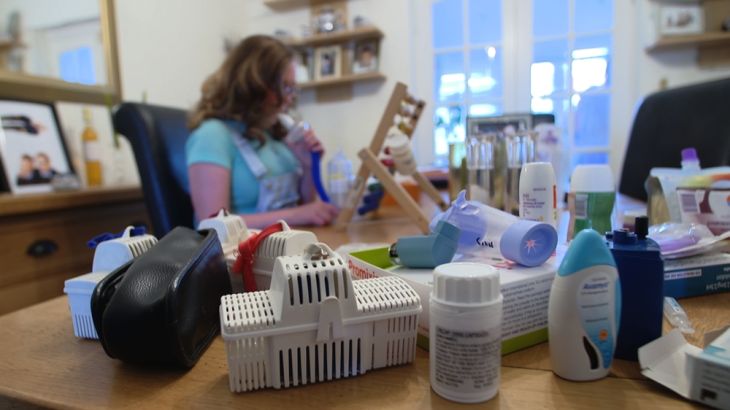
Gene Therapy for Cystic Fibrosis
A new experimental therapy helps tackle genetic disorders by addressing their root cause – faulty genes.
From nebulisers, inhalers, and breathing exercises, to laxatives and physiotherapy, Mary Bondonno’s morning routine is not something most 16-year-olds’ wake up to. Diagnosed with cystic fibrosis at the age of one, she goes through an arduous, hour-long medical routine every morning and night to try and manage the symptoms of her genetic condition.
“There are days when I really don’t want to take my medication but I know I have to,” she explains. “I know if I don’t take it then I will get ill.”
Keep reading
list of 4 itemsDeadly Sahel heatwave caused by ‘human-induced’ climate change: Study
Woman, seeking loan, wheels corpse into Brazilian bank
UK set to ban tobacco sales for a ‘smoke-free’ generation. Will it work?
Despite locating the faulty gene that causes cystic fibrosis in 1989, scientists have struggled to find a real solution for this condition which remains incurable. But things might be about to change. Scientists and doctors brought together by the Cystic Fibrosis Consortium carried out a year-long trial of a new and experimental treatment called “gene therapy” and proved for the first time ever that it could improve the health of those with cystic fibrosis.
Gene therapy is an experimental technique where copies of a normal gene are inserted into the DNA of cells to counter the effects of the faulty gene. The ground-breaking trial was the culmination of the efforts of around 70 scientists, medics and research nurses from institutes such as the Imperial College London and the Royal Brompton Hospital.
For Mary, the impact of the gene therapy clinical trials was clear. “I had a lot more energy, I didn’t need my wheelchair, my grades were going up and I was getting a lot more done,” she says. “It was the best year of my life. So I want that back.”
Scientists are now exploring ways to amplify the impact of the gene therapy complex they developed and to help make this treatment widely available to those with cystic fibrosis. This success story for gene therapy also represents a huge step forward for those working on targeting other genetic conditions such as thalassemia and even cancer.
Join Dr Elizabeth Healey in the UK to meet the doctors and scientists helping tackle genetic disorders by addressing their root cause – faulty genes.